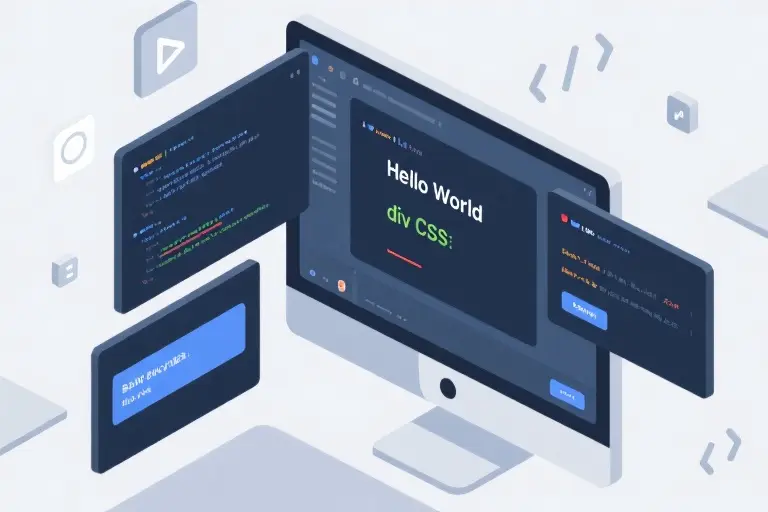There’s this post going around lately that claims you’re not a real senior software engineer until you’ve worked on a legacy application. You know the type – those crumbling monuments to outdated architecture that somehow still power half the internet. It got me thinking: if wrestling with ancient codebases is the rite of passage for senior devs, what are the milestones that make someone a programmer in the first place?
I started jotting down moments from my own journey, then asked some friends and former coworkers to chime in. What emerged was this unofficial, slightly chaotic certification checklist for our profession. Some items will make you nod in recognition, others might make you cringe with secondhand embarrassment (we’ve all been there), and a few might just convince you that programmers are a peculiar breed indeed.
The list isn’t exhaustive – how could it be? Every coder’s path winds differently through late-night debugging sessions, triumphant eureka moments, and those times when you genuinely consider becoming a goat farmer instead. But these shared experiences, from the humble Hello World to production database disasters, form something like a collective initiation ritual for our tribe.
What surprised me wasn’t just how many items we collectively identified, but how these moments map roughly to stages in a developer’s growth. There’s the wide-eyed beginner phase full of firsts, the messy middle period where you learn through spectacular failures, and that point where you start developing… let’s call them strong opinions about code quality. The journey from “it compiles!” to “this architecture offends me” is rarely linear, but the landmarks along the way are strangely universal.
So whether you’re just starting out and wondering what lies ahead, or you’re a battle-scarred veteran who needs a laugh (or possibly a drink), here’s our crowdsourced answer to that original question. Consider it part field guide, part cautionary tale, and entirely too relatable for anyone who’s ever tried to center a div.
The Rite of Passage: When Can You Call Yourself a Programmer?
That tweet about legacy systems got me thinking – if wrestling with ancient codebases is the benchmark for senior engineers, what exactly qualifies someone as a programmer in the first place? After polling my network and reflecting on my own journey, I’ve realized there’s an unspoken certification process we all go through. Here’s what makes the cut for that first tier of programmer validation.
Your First ‘Hello World’
The moment your terminal obediently prints those two magic words marks your formal introduction to this world. It doesn’t matter if it took three tutorials, two compiler errors, and one existential crisis to get there – that glowing cursor finally doing your bidding creates a chemical reaction in your brain that never quite fades. I still remember the rush from my first successful output, immediately followed by the terrifying realization that I had no idea how to make it do anything else.
printf Debugging: The Programmer’s First Tool
Before learning proper debugging tools, we all go through the phase where sprinkling print statements feels like advanced sorcery. That moment when you strategically place Console.WriteLine("Got here 1") through your code like breadcrumbs in a digital forest? That’s programming in its purest, most desperate form. The real magic happens when you forget to remove them before committing, leaving behind a permanent archaeological record of your struggle for future developers to discover.
The Great Div Crisis
Googling “how to center a div” might as well be part of the web developer’s baptism. There’s something beautifully humbling about this particular search appearing in the history of everyone from bootcamp grads to engineering VPs. The CSS alignment struggle transcends experience levels, creating an eternal bond among front-end developers worldwide. When you finally crack it (usually with some combination of flexbox and muttered curses), you’ve earned your first front-end merit badge.
Building Your Digital Training Wheels
Every programmer’s portfolio contains at least one of these starter projects: a to-do app that somehow takes three times longer than expected, or a calculator that handles basic arithmetic with all the grace of a sleep-deprived undergrad. These projects teach the most valuable lesson of all – the gap between “I understand the concepts” and “I can actually make something work” is wider than any documentation prepares you for.
The StackOverflow Hustle
Copying code from StackOverflow isn’t cheating – it’s professional development. That first time you successfully modify a solution to fit your needs (without fully understanding why it works) marks your transition from passive learner to active problem-solver. The real milestone comes when you start recognizing certain users’ avatars from their repeated appearances in your search results – at that point, they’ve essentially become your unofficial mentors.
These early experiences form the foundation of every programmer’s journey. They’re the shared stories we laugh about later, the humble beginnings that make our eventual competence feel earned rather than given. What’s fascinating is how universal they remain across generations of developers – the tools change, but these fundamental rites of passage endure.
The Painful Growth: Moments That Make You Question Your Career Choice
Every programmer has those days when the universe seems to conspire against their keyboard. These aren’t just bad days – they’re rites of passage that separate the greenhorns from the battle-scarred veterans. Here’s the unofficial checklist of painful milestones that prove you’re truly in this profession for the long haul.
The Database Incident
There comes a day when you execute that innocent-looking DELETE FROM customers without a WHERE clause. The milliseconds of silence before panic sets in. The cold sweat when you realize what’s gone. And the frantic Googling of “how to recover deleted SQL data” while imagining your resignation letter. Pro tip: Always wrap dangerous operations in transactions – BEGIN TRANSACTION could save your job.
The Environment Paradox
“But it works on my machine!” becomes your personal mantra when code that ran perfectly in development crumbles in production. The hours spent comparing configurations, dependency versions, and secretly wondering if the production server just dislikes you. This is when you truly understand why seasoned developers get twitchy about environment parity.
The PM Ping-Pong
You know you’ve arrived when your project manager’s “How’s it going?” messages start feeling like a psychological experiment. The third check-in before lunch makes you question whether they think you’re coding or performing open-heart surgery. Bonus points if you’ve developed the ability to translate “almost done” into actual timeline estimates.
The Variable Name Wars
Code reviews become ideological battlegrounds when someone challenges your naming conventions. userData vs userInfo – what begins as constructive feedback escalates into a 20-comment thread about semantic purity. You’ll eventually learn that sometimes tempVariable is fine, and that not every name needs to tell the complete story of human civilization.
The 5:55 PM Surprise
Nothing bonds a team like deploying a critical hotfix at 17:55 when you clock out at 18:00. That moment when you’re halfway into your “See you tomorrow!” message and monitoring starts screaming. The shared trauma of watching deployment logs with one eye on the clock turns colleagues into family – the kind that occasionally wants to strangle each other.
These painful moments aren’t just war stories – they’re the invisible curriculum of our profession. Each disaster survived makes you more valuable than any certification could. Because real programming isn’t about perfect syntax; it’s about developing the instincts to navigate chaos, the humility to learn from mistakes, and the dark humor to laugh about it later over coffee.
The Senior Developer’s Curse: When Clean Code Becomes an Obsession
There comes a point in every programmer’s journey when something snaps. It’s not marked by a promotion or a pay raise, but by that moment you find yourself staring at perfectly functional code with visceral disgust. That’s when you know – you’ve crossed into senior developer territory, and there’s no going back.
The Clean Code Epiphany
For many of us, the transformation begins with Robert Martin’s Clean Code. What starts as innocent bedtime reading soon becomes a personal manifesto. Suddenly, those 15-line methods you wrote last year look like criminal offenses. That clever one-liner with three nested ternary operators? A war crime against maintainability. You develop an uncontrollable urge to refactor everything in sight, including the coffee machine’s firmware.
Unit Testing Ancient Code
Then comes the phase where you voluntarily spend weekends writing unit tests for decade-old legacy code. Not because anyone asked, but because you’ve developed what doctors might call “professional responsibility” and your spouse calls “that weird coding obsession.” You rationalize it as “future-proofing,” but deep down, you know it’s about proving you can tame the spaghetti monster.
The Physical Aversion to Bad Code
True seniority manifests when poorly structured code triggers physical reactions. Your eye twitches at sight of a 500-line God class. Your stomach churns when you encounter yet another “Utils” namespace containing 80% of the codebase. That time you found business logic mixed with database access and UI rendering? You needed to lie down for twenty minutes.
The “It Works” Paradox
Eventually, you reach the final stage where hearing “but it works” from junior developers makes you want to scream into a pillow. You start muttering about technical debt during company meetings. Your GitHub contributions graph looks like you’re trying to Morse code “HELP” through green squares. And yet – here’s the cruel irony – you secretly envy those carefree days when “working” was enough.
This isn’t just skill progression; it’s the developer’s version of the red pill. Once you see the matrix of clean architecture, you can’t unsee the mess. Welcome to seniority – where every coding victory comes with fifty new things to fix, and the only cure is writing more code.
The Crowdsourced Confessions
No programmer’s journey is complete without those shared war stories that make us nod in painful recognition. Here’s a collection of battle scars from fellow coders that’ll have you muttering “there but for the grace of Git go I”:
“Fixed the bug at 3AM but still don’t know why it worked” – @A_Colleague
The universal experience of triumph mixed with existential dread. You tried seven solutions, then the eighth worked through some dark magic. The commit message probably says “fixed edge case” when you know it’s pure voodoo.
“Got a compilation error on line 123… in a 40-line file” – @B_Dev
That moment when the error message makes you question reality itself. Bonus points if it’s a syntax error claiming your closing brace doesn’t exist while staring right at it.
“Interviewer asked which programming language I breathe in” – @C_Friend
The tech equivalent of “where do you see yourself in five years?” We’ve all faced those philosophical interview questions that sound deep but really just measure how well you can bullshit about abstraction layers.
“Spent 4 hours debugging before realizing I was editing the wrong file” – @D_FormerCoworker
The developer’s version of looking for your phone while holding it. Usually happens during that golden hour when you’re too focused to notice obvious things.
“Celebrated a successful deployment… on the staging server” – @E_SeniorEngineer
The walk of shame back to your desk after this realization hits is a rite of passage. Extra humiliation if you’d already posted “Mission accomplished!” in Slack.
These aren’t failures – they’re the invisible merit badges on every programmer’s jacket. What’s your most memorable “I can’t believe this happened” coding moment? The ones we laugh about later (much later) are often the ones that taught us the most.
(Drop your story in the comments – let’s see who’s suffered the most creatively!)
The Ultimate Programmer Rite of Passage
So we’ve laughed through the shared trauma of deleted databases, nodded along to the 3AM debugging sessions, and secretly judged those who still center divs with tables. But here’s the real question – what’s your defining moment that made you feel like a “real programmer”?
This isn’t some hierarchical certification. The beauty of our field lies in these messy, unglamorous moments that somehow bond us more than any fancy framework expertise ever could. That time you accidentally rm -rf the wrong directory? Welcome to the club. The first time you got emotional about someone else’s indentation style? You’re one of us now.
I’ll make you a deal – share your most memorable “programmer certification moment” in the comments (bonus points if it involves production servers after midnight), and I’ll compile the best ones into a community hall of fame. Tag that coworker who still denies their “SELECT * FROM users” phase – we were all there once.
P.S. If you’re reading this during your fifth coffee while waiting for tests to pass… congratulations, you’ve officially leveled up.





